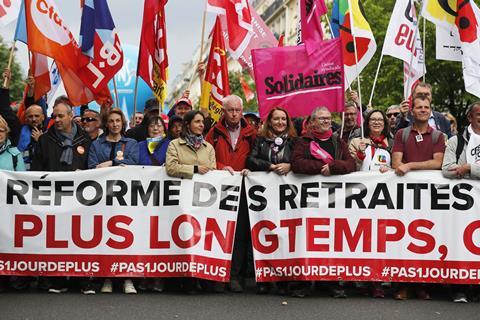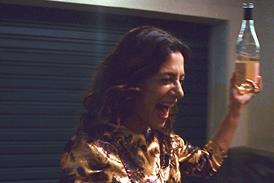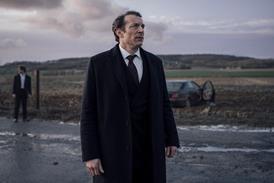
Cannes Film Festival has never shied away from scandal, yet this year’s edition will take place against a backdrop of social unrest in France not seen since 1968. The global film industry is holding its breath to see how this will impact both the logistics and the tone of the festival.
Beyond the pension protests, the US writers’ strike is already shaking up the industry and plenty of off-script drama has been unfolding since the line-up was unveiled.
First to cause a stir was the announcement of Maïwenn’s starry French period drama Jeanne Du Barry as the opening film. It marks a return to the spotlight of the film’s star Johnny Depp, following his UK libel case against The Sun newspaper (that he lost) and US defamation case against ex-wife Amber Heard (that he won). Just days later, it emerged Maïwenn was being sued by a French journalist for allegedly attacking him in a restaurant.
Then came the late addition of Catherine Corsini’s Homecoming to Competition, which has sparked a backlash. First, there were reports Corsini was accused of on-set harassment by crew members during the shoot. The director denied the accusations and has been absolved of any charges. Separately, a scene involving minors did not receive pre-approval from the relevant French organisation and the CNC swiftly pulled its funding. Corsini and her producer have admitted they regrettably overlooked the approval process for the scene. The initial furore has died down in France but the film’s Cannes premiere may restart the conversation.
Adding fuel to the fire are the recent multiple accusations of sexual misconduct against French actor Gérard Depardieu in a report by investigative newspaper Mediareport (the actor’s lawyers have said he “denies all the accusations that could be subject to criminal law”).
Cannes has tended to avoid politics once the lights go down but has weighed in to support artists in countries including Ukraine and Iran. Last year’s festival kicked off with a surprise appearance via satellite from Ukraine’s president Volodymyr Zelensky, who spoke about the role of cinema in world affairs. The Marché has further bolstered its Ukraine in Focus programme for 2023 to support the country’s film industry.
The festival issued a statement in July 2022 demanding the release of filmmakers Mohammad Rasoulof, Mostafa Aleahmad and Jafar Panahi, detained by Iran’s ruling regime, and condemning “the wave of repression obviously in progress in Iran against its artists”. Rasoulof had to turn down an invitation to join the Un Certain Regard jury due to his travel ban.
Pension unrest
All of the festival-focused fever comes as French daily life continues to be disrupted by protests, transport strikes and even question marks over the energy supply. France’s energy workers union has threatened to target major events including Cannes in what it calls “100 Days of actions and anger”, a direct response to president Emmanuel Macron’s April speech calling for “100 days” of measures meant to ease the tensions that have resulted as he pushed through a law raising the country’s retirement age.
The group claims it will disrupt power sources, which could see venues all over town go dark. While the Palais and city say they have preventative measures in place, any glitch in electrical supply could harsh the vibe. Strikes have also affected rail and air travel in recent months.
The country’s armed national police force and local contingents will be deployed on the streets of Cannes once again, in addition to the city’s more than 800 surveillance cameras watching every move.
One unknown is whether France’s stars will use the red carpet to speak up against Macron’s reforms and other social issues. In recent months, Juliette Binoche, Marion Cotillard and Isabelle Adjani symbolically cut their hair in a video campaign to support protests in Iran calling for women’s freedom; others signed an open letter behind the same cause, including Corsini and Cannes delegate general Thierry Frémaux.
Binoche stars in Tran Anh Hung’s The Pot Au Feu and Cotillard in Mona Achache’s Little Girl Blue, both in the festival. The stage is set for a compelling blend of art and activism.

























No comments yet